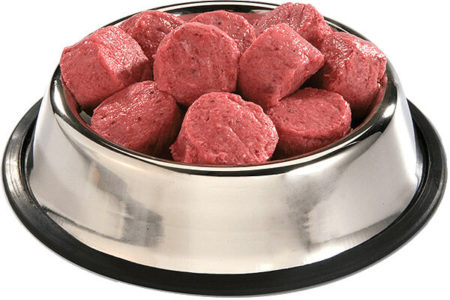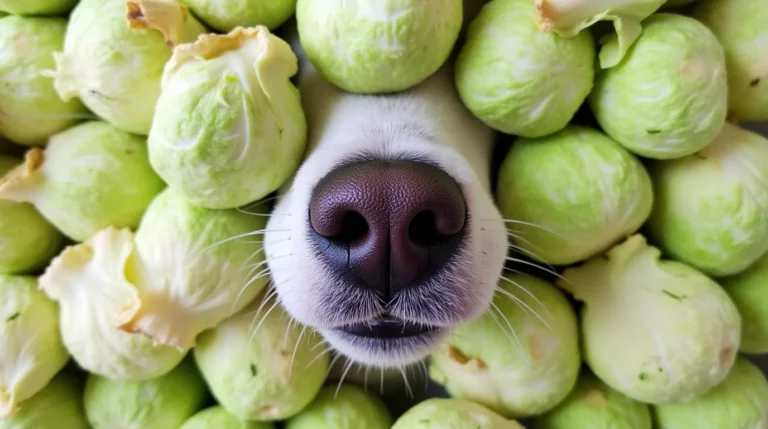Table of Contents
Pet owners are always searching for the best nutrition options for their furry companions. One type of diet gaining popularity is frozen dog food—a fresh and minimally processed alternative to dry kibble and canned meals. Known for its high nutritional value, this type of pet food preserves essential vitamins and minerals without artificial preservatives.
But is this the right choice for your dog? This guide will explore its benefits, potential drawbacks, and how to decide if it suits your pet’s dietary needs.
What is Frozen Dog Food?
Frozen pet food consists of raw or lightly cooked ingredients that are preserved through freezing. This method maintains the integrity of meat, vegetables, and essential nutrients without the need for artificial additives.
It is available in several forms, including:
- Raw frozen meals – Typically made from raw meat, organs, and bones, resembling a natural canine diet.
- Freeze-dried or dehydrated raw – A lightweight version that retains nutrients while extending shelf life.
- Frozen cooked meals – Gently prepared meals that are frozen to preserve freshness.
These options allow pet owners to select a formula that best fits their dog’s preferences and nutritional needs.
Advantages of Frozen Dog Food
This diet offers several advantages, making it a top choice for health-conscious pet owners.
1. Higher Nutritional Value
Since it undergoes minimal processing, essential nutrients remain intact. This ensures your pet gets the right balance of proteins, healthy fats, and vitamins.
2. No Artificial Additives
Many commercial pet foods contain preservatives, fillers, and artificial flavors. Frozen options often eliminate these additives, making meals healthier.
3. Improved Digestion
Many dogs struggle with digestive issues due to processed ingredients in kibble. A natural, fresh diet can ease digestion, leading to:
- Better stool quality
- Reduced bloating
- Fewer allergies
4. Healthier Skin and Coat
Essential omega-3 and omega-6 fatty acids found in fresh meats help maintain a shiny coat and healthy skin.
5. Weight Management
Since frozen meals often contain higher protein and fewer fillers, they help maintain an ideal weight and prevent obesity-related health issues.
6. Enhanced Energy Levels
Fresh, high-quality ingredients can boost your dog’s energy, keeping them active and playful.
Disadvantages of Frozen Dog Food
Despite its many benefits, there are a few challenges pet owners should consider.
1. Higher Cost
Compared to traditional kibble, frozen meals are more expensive due to the quality of ingredients and specialized storage requirements.
2. Storage and Handling
Proper storage is crucial to prevent spoilage. Unlike dry food, frozen meals require freezer space and careful handling.
3. Thawing Time
Some meals need to be thawed before feeding, requiring advance preparation compared to the convenience of scoop-and-serve kibble.
4. Risk of Bacterial Contamination
Raw frozen diets may contain bacteria such as Salmonella or E. coli if not handled properly. It’s important to:
- Wash hands thoroughly after handling raw food.
- Clean feeding bowls regularly to avoid contamination.
5. Limited Shelf Life
Once thawed, meals must be used within a few days to maintain freshness, unlike dry food which lasts for months.
6. Less Convenient for Travel
Traveling with frozen pet food can be challenging since it requires proper refrigeration to stay fresh.
Is This the Right Choice for Your Dog?
If you’re considering switching, here are some key factors to evaluate:
✔ Dietary Needs: Does your dog require a fresh diet for allergies, digestion, or weight management?
✔ Budget: Can you afford the higher cost of quality ingredients?
✔ Storage Space: Do you have freezer space for proper storage?
✔ Convenience: Are you willing to manage thawing and handling processes?
For dogs with food sensitivities or digestive issues, frozen meals can be an excellent alternative to processed kibble. However, consulting with a veterinarian before making major dietary changes is always recommended.
Conclusion
Frozen dog food provides a fresh, nutrient-rich diet that supports digestive health, weight management, and coat quality. While it offers numerous benefits, factors such as higher cost, storage requirements, and handling precautions must be considered.
By weighing the pros and cons, pet owners can make an informed decision about whether this diet is the right fit for their furry friend. If properly managed, frozen meals can contribute to a longer, healthier, and happier life for your pet.







